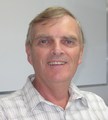FINANCIAL VALUATION OF ECOLOGICAL SERVICES AND WORTH: “As a result of alterations to the hydrology of the creekshed, the Shelly Creek ‘riparian ecosystem’ has been reduced to a number of ‘riparian zones’ as defined in regulations. We view this finding as one of the key takeaways from the Shelly Creek demonstration application of the Ecological Accounting Process,” stated Tim Chair, EAP Chair

“The Ecological Accounting Process (EAP) considers use and conservation of land to be equally important values. Historically, land use and property development in our communities have been given priority over ecological systems such as streams. Too often the result has been remnant ecological services that fall far short of the benefits that these natural commons can provide. The research findings suggest that the diminution of stream functions gradually will draw the attention of property owners and the community to the ‘no harm’ rule in land appraisal.,” stated Tim Pringle.










